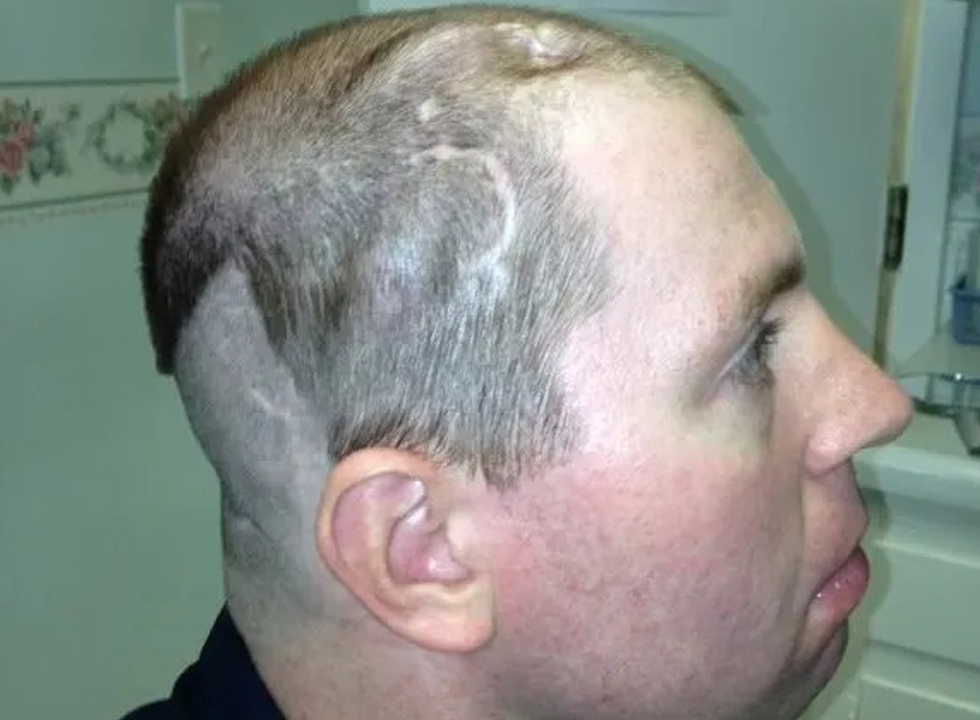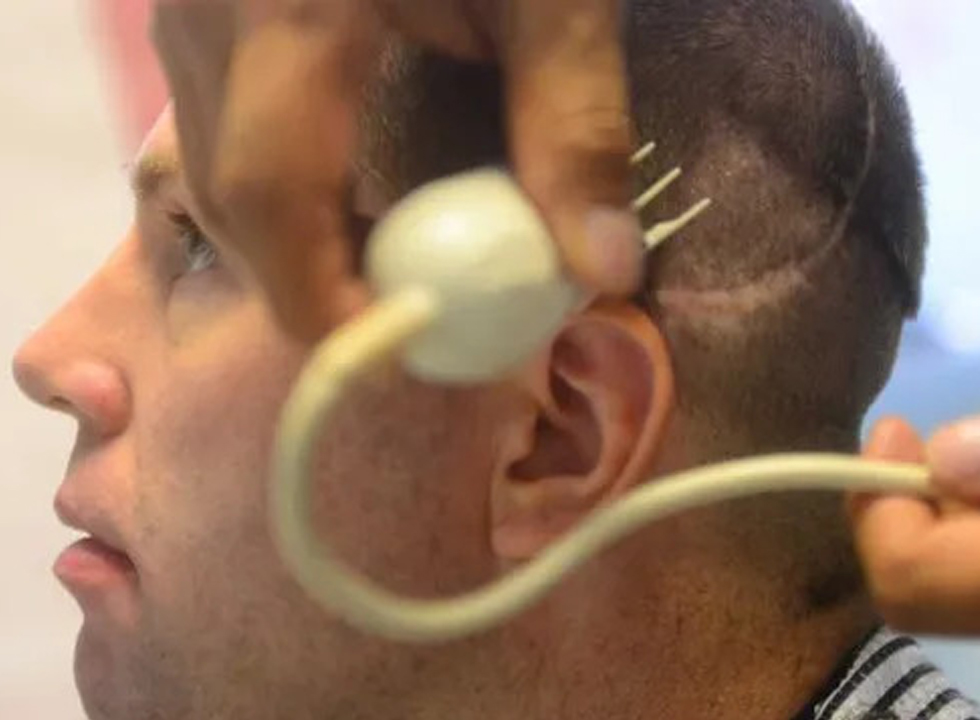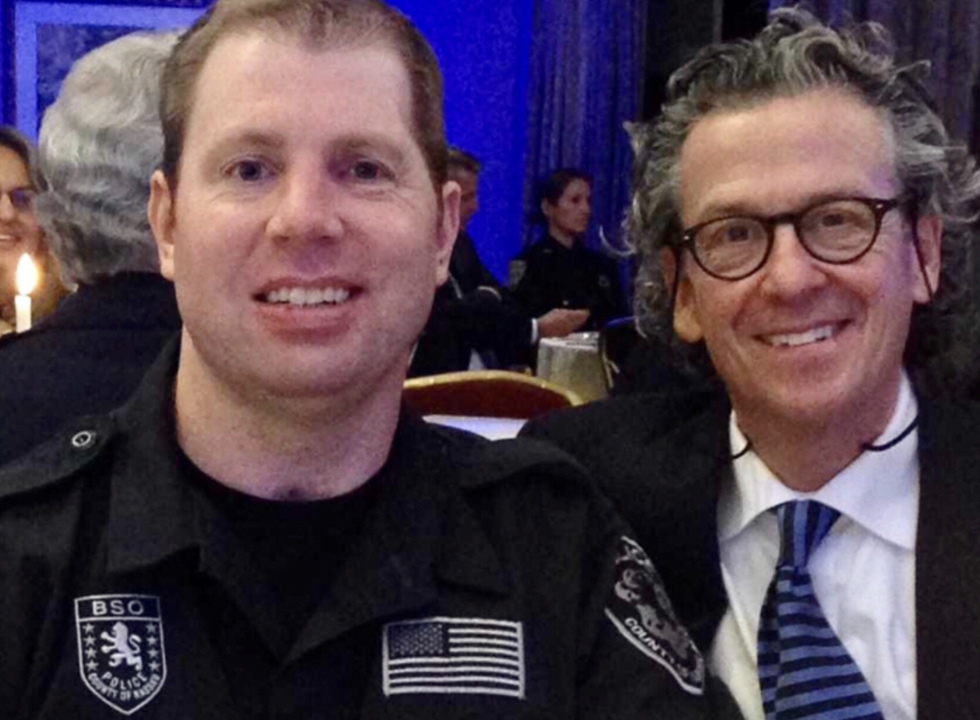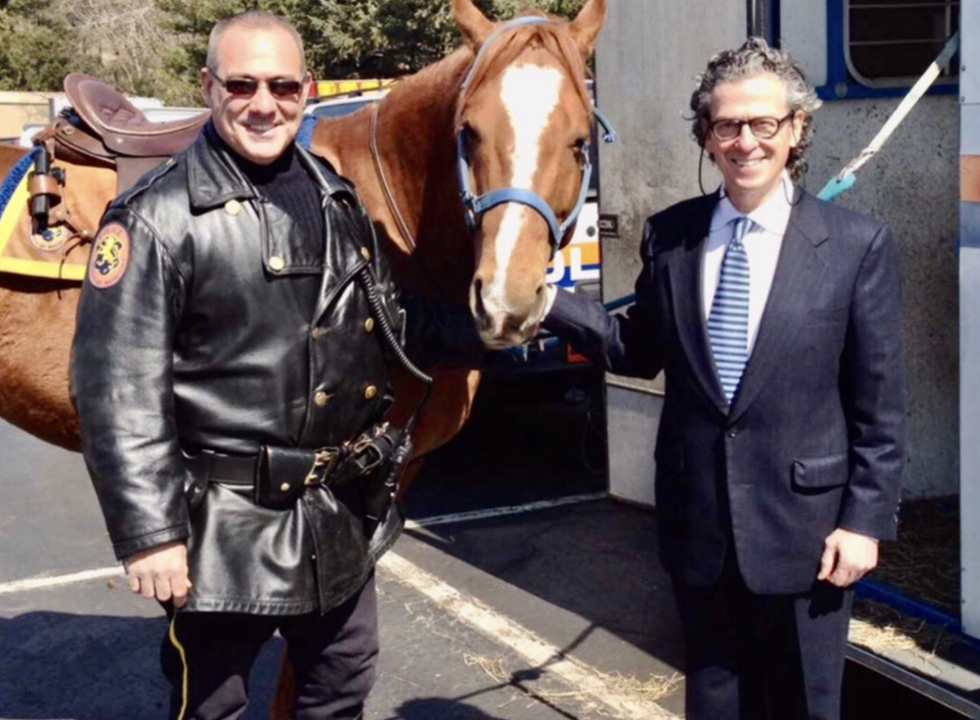Maybe he could learn to feed himself.
That’s what Patricia Baribault, of Nesconset, said she was told by the neurosurgeon after her son, Nassau police Officer Kenneth Baribault, was hit by a drunken driver as he sat in his cruiser on May 18, 2008. He had been questioning another drunken-driving suspect on the side of the Long Island Expressway.
But five years later, after six days a week of extensive therapy, Baribault, 35, is walking, with some help from others. His lopsided grin and quick answers to questions — although in short phrases — show he is “cognitively all there,” his mother said.


The collision in Plainview left him with multiple injuries, including a shattered pelvis and a brain clot on his left side that partially paralyzed his right side and took away his ability to utter a sound for 10 months.
The treatment for the blood clot also left Baribault with an 8-inch C-shaped scar running along the left side of his skull and an inch-deep divot on the right side where a shunt had been placed to relieve fluid buildup in his skull.
And now he wants a full head of hair.
Baribault is working with Dr. Keith Durante, a surgeon in West Islip, who is the only doctor on Long Island to offer a minimally invasive hair transplant procedure.
Baribault had been worried about losing some hair before the accident, his mother said. But with the scars on his head, he was becoming more concerned about it.
“Ordinarily, it wouldn’t be a big deal,” she said. “But we don’t want him to become self-conscious when he goes out in public.”


Rahiem Griffin, of Shirley, was sentenced to 7 years in prison after being convicted in June 2009 of second-degree reckless assault, drunken driving, aggravated unlicensed operation of a motor vehicle and other charges.
Durante knows the impact of drunken drivers. His 20-year-old daughter Elizabeth was killed in 2009 when the van in which she was a passenger was struck by a drunken driver going the wrong way on Interstate 395 in Connecticut.
So Durante said he was very happy to offer Baribault the procedure, which he said was perfect for someone with scars on the scalp.
Baribault “wouldn’t be a candidate for the other method,” Durante said. “The skin would be too tight between the scar and shunt.”
The typical hair transplant method entails removing a 3- to 4-inch strip of scalp with hair from the back of the head and then sewing the skin back together. Instead, an automated device with a vacuum extracts hair follicles.
They are separated by hand into groups of one, two or three hairs. Holes are then punched into the scalp where the hairs are to be implanted.
Using tweezers, the surgeon or technician then places the follicles into the holes. There is little bleeding and no pain. Baribault said he felt nothing after Durante numbed his scalp.
But it is not a short procedure — or inexpensive. Durante said he usually charges about $8 per hair for the first 1,000 hairs and less for the second 1,000, a typical harvest. The procedure, considered cosmetic, is not usually covered by health insurance.
“It’s one of those cases I felt really good about doing,” Tony Bernal, director of a team of technicians who travel around the country assisting doctors, said. “I really felt I was making a difference.”
Patricia Baribault attributes her son’s progress to the same discipline he showed during the hair transplant — and to his therapy with Dr. Philip Defina, chief executive of the International Brain Research Institute in Flanders, N.J., where Baribault still goes twice a week for speech therapy.
“The speech is coming,” his mother said. “There’s no reason it shouldn’t improve.”
During a quick break as he ate lunch, Patricia Baribault said of her son: “He’s a fighter.”
Baribault smiled and said with quiet conviction: “Yes.”
“He’s always been stoic,” said his father, Kenneth. He said he was surprised at how good the transplant looked less than 24 hours later, although Bernal said it typically takes a year to see full results.
“He slept very well and he’s not in any pain,” his father said. “He’s pretty happy with it.”